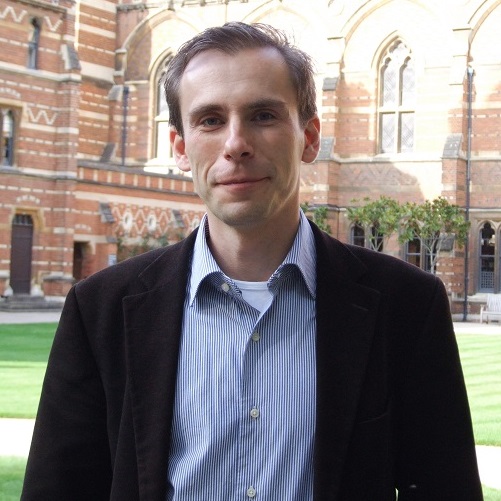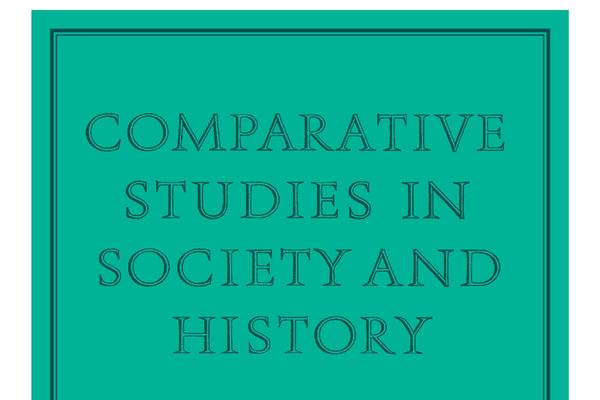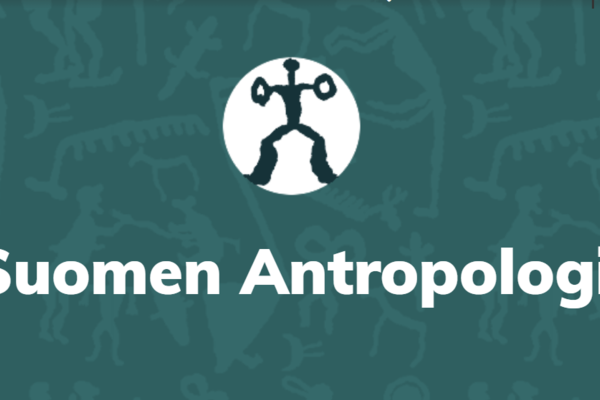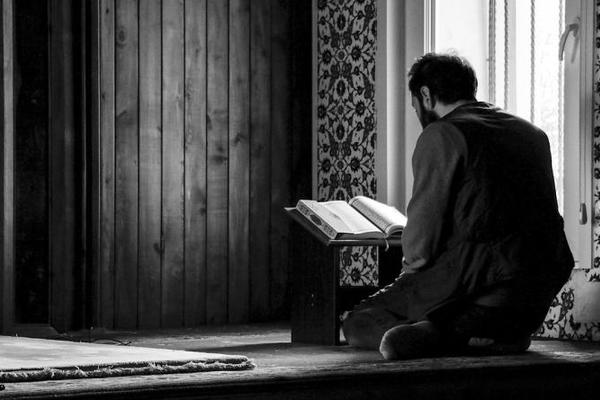Professor Morgan Clarke

Professor of Social Anthropology
Unit Affiliation: Institute of Social & Cultural Anthropology
Fellow of Keble College
Contact
morgan.clarke@anthro.ox.ac.uk +44 (0)1865 612364
Supervision
Morgan is available for supervision
Bio
I was trained in anthropology at Oxford, where I did doctoral research (2006) on Islamic bioethics, reproductive technology and kinship. I went on to hold a British Academy Postdoctoral Fellowship at the University of Cambridge (2006-9) and a Simon Fellowship at the University of Manchester (2009-11), focusing on the relationship between sharia, law, religious vocation and the state. I returned to Oxford in 2011 as Associate Professor of Social Anthropology and Tutorial Fellow in Anthropology at Keble College. I have conducted fieldwork in Lebanon and more recently in the UK, on topics ranging from religious authority and institutions, to everyday ethics and religious experience.
Interests
I am interested in the anthropology of Islam, especially sharia, and themes of ethics, law, rules and authority.
At the core of my research is an attempt to understand what it means to be a good person.
My current research, funded by the John Fell Fund, is focused on the place of sharia norms in the everyday life of a Shi‘i Muslim community in the UK. This project is a close collaboration with Dr Ali-Reza Bhojani, who studies, and teaches Islamic ethics, theology and legal theory at University of Birmingham. Together we aim to understand how people in the community view religious rules in relation to other elements of Islamic ethical and devotional practice, and how they manage the tensions between them and other forms of social norms. We hope that in so doing we can help combat some of the misperceptions that surround sharia in wider British society.
I am also working on new anthropological approaches to the study of explicit ethical rules more generally. In 2021 I co-edited Rules and Ethics: Perspectives from Anthropology and History with Dr Emily Corran.
Key Publications
Islam and Law in Lebanon Sharia within and without the State
Rules and Ethics: Perspectives from anthropology and history
Recent articles
Religious Authority beyond Domination and Discipline: Epistemic Authority and Its Vernacular Uses in the Shi‘i Diaspora
Religious rules and thick description: some thoughts from the anthropology of Islam
Sharia
Islamic bioethics and new kinship studies
My first major research project, funded by the ESRC, examined Islamic bioethics, in particular regarding assisted reproduction, through an engagement with Islamic legal specialists and medical practitioners in Lebanon. Alongside a series of articles, the resulting book, Islam and New Kinship: Reproductive Technology and the Shariah in Lebanon (Berghahn, 2009), both gave a pioneering account of the range of Islamic opinion regarding these challenging new possibilities, and built on this to develop a critical discussion of the ‘new kinship’ studies in anthropology. In a subsequent collaboration with colleagues at the University of Hamburg, I have reflected on the nature of Islamic bioethics as a novel assemblage of different forms of knowledge/power – religious, biomedical and state-legal (Clarke, Eich and Schreiber 2015). For some years I was part of the Medical Anthropology teaching team here at Oxford. I also served as the associate editor responsible for Kinship, Relatedness, Reproduction and Life Stages for the twelve-volume Wiley International Encylopedia of Anthropology (2018).
Sharia courts and the civil state
My second major project, funded by the British Academy and a Simon Research Fellowship, was an ethnography of the social life of sharia in Lebanon, focusing on sharia (family law) courts and their relationship to both the civil state and non-state Islamic institutions. Beyond the Sunni and Shi‘i courts, that included fieldwork in mosques, Sufi circles and the offices of major religious scholars, not least Lebanon’s own Ayatollah Muhammad Husayn Fadlallah. This work, which combined ethnographic and textual analysis, led to my second book, Islam and Law in Lebanon: Sharia Within and Without the State (CUP, 2018). Here I present both an authoritative account of how Islamic family law works in Lebanon, and an exploration of the ways in which ‘Islamic law’ overflows the boundaries that the state tries to set for it. This required bringing together the traditions of the anthropology of law and the anthropology of ethics in innovative ways. I end by proposing the notion of an ‘Islamic state effect’, whereby the imagined utopia of the Islamic state provides a vantage point for critique of bureaucratic positive law.
Religious authority and rules
Building on my work in Lebanon, I have published on other aspects of religious authority, from the ordinary ethics of Sufi miracles (Clarke 2014) to the impact of digital technologies in Twelver Shi‘ism (Clarke 2010, 2016). A Princeton-Oxford collaborative grant allowed me and my colleagues to argue for the importance of ‘De-Centring Shi‘i Islam’ (Clarke and Künkler 2018), and in subsequent work I have developed more bottom-up understandings of religious authority and practice in response, not least through my long-term collaboration with Ali-Reza Bhojani in the UK. (We reflect on the interpositional and interdisciplinary dynamics of our collaboration here.) Our study of religious law in ordinary practice informs my broader project of developing new anthropological approaches to rules, funded by the Leverhulme Trust. In addition to my co-edited book Rules and Ethics (Clarke and Corran 2021), I have also co-edited a journal issue on ‘Bending, Breaking and Adhering to Rules in Religious Contexts’ (Alava, Clarke and Gussman 2022) and contributed the chapter on ‘Rules’ in the Cambridge Handbook for the Anthropology of Ethics (Laidlaw 2023).
Teaching
I welcome applications for doctoral research and other collaborations in any of these areas, and in the anthropology of Islam, law and ethics more generally. I also teach on the MSc and MPhil programmes in Social Anthropology and am closely involved in the teaching and administration of the undergraduate degrees in Human Sciences and Archaeology and Anthropology, also serving as the tutor for anthropology at Keble College.
2023 Rules. In James Laidlaw (ed.), The Cambridge Handbook of the Anthropology of Ethics. Cambridge: Cambridge University Press.
2023 (Co-authored with Ali-Reza Bhojani) Religious authority beyond domination and discipline: epistemic authority and its vernacular uses in the Shi‘i diaspora. Comparative Studies in Society and History 65(2): 272-295.
2022 Religious rules and thick description: thoughts from the anthropology of Islam. Suomen Antropologi – The Journal of the Finnish Anthropological Society 46(3): 16-31.
2021 Comparing casuistries: rules, rigour and relaxation in Islam and Christianity. In Morgan Clarke and Emily Corran (eds), Rules and ethics: global perspectives from anthropology and history. Manchester: Manchester University Press.
2018 Islam and law in Lebanon: sharia within and without the state. Cambridge: Cambridge University Press
2016 After the Ayatollah: routinisation and succession in the marja‘iyya of Sayyid Muhammad Husayn Fadlallah. Die Welt des Islams 56(2): 153-186.
2015 Legalism and the care of the self: shari‘ah discourse in contemporary Lebanon. In Paul Dresch and Judith Scheele (eds.), Legalism: rules and categories. Oxford: Oxford University Press.
2015 With Thomas Eich and Jenny Schreiber. The social politics of Islamic bioethics. Die Welt des Islams 55 (3-4): 265-277.
2014 Cough sweets and angels: the ordinary ethics of the extraordinary in Sufi practice in Lebanon. Journal of the Royal Anthropological Institute (N.S.) 20(3): 407-425.
2012 The judge as tragic hero: judicial ethics in Lebanon’s shari‘a courts. American Ethnologist 39(1): 106-121.
2010 Neo-calligraphy: religious authority and media technology in contemporary Shiite Islam. Comparative Studies in Society and History 52(2): 351-383.
2009 Islam and new kinship: reproductive technology and the shariah in Lebanon. New York: Berghahn Books.











